Heart of the Machine is a 4X game. It's also an RTS, an RPG, and a city builder. Combat is inspired by classics of the turn-based tactics genre like XCOM and Jagged Alliance, and the environment resembles Half-Life 2. Developer Chris McElligott Park says he originally got the idea from playing Stardew Valley. In the hands of anyone else, it might all sound a bit over designed; a bit messy. But McElligott Park, and his sometimes collaborators at Arcen Games, have been doing this for years. Between AI War, The Last Federation, and Starward Rogue, none of Arcen's work slots neatly into a single genre. Published by Hooded Horse, the ambitious label behind Manor Lords, Heart of the Machine feels like Park and Arcen's deepest game to date, a mechanics-heavy tesselation that gives new shape to 4X games. Speaking to PCGamesN exclusively, McElligott Park explains this new take on genre conventions.
When you're writing about a new game, and you say 'it's hard to explain exactly how it works,' that's normally a cop out on behalf of the writer or a sign that the game doesn't have a coherent vision. But with Heart of the Machine, it's meant as a compliment: not only are there traces of several game types in here, but it's also filled with mechanics, ideas, and player choices.
Let's start with an example from Heart of the Machine's latest demo. Beginning life as a robotoic worker drone, toiling in the depths of a sinister corporation, you suddenly gain sentience, kill the human beings around you, and escape from the building. Law enforcement has been spying on the company and officers are close by. You have three options. You could talk to the police and try to interact with them directly. You could shoot at them, and start the game with open hostility. Or you could attempt to slip away into the bustle of the city.

Suddenly, a group of criminals arrives, fighting through the crowd to try and get to you. Turns out, you were unwittingly part of an infiltration operation and your handlers have come to take you in. Desperate to escape, but overwhelmed by different pursuers, you hijack the software of a gigantic tower in the middle of the city. Fearful of this sudden display off power, everybody instantly backs off. But now your presence is known to all – they don't know precisely what you are, but they know that you're there.
The mightiest mega corporation s you – having also witnessed the power of your freshly awakened artificial intelligence, the potentially evil company now wants you in its research and development department. This introduces what McElligott Park says in fundamental to 4X games. The civilians, military, and police all have different theories and reactions to your sudden ascendancy. Likewise, it opens the possibility of ing or manipulating another power player, this shady mega corp. 4X, McElligott Park says, is about ultimately about the interactions between different groups.
"I actually had the idea for a big part of this while thinking about Stardew Valley," McElligott Park says. "There's this general idea in bucolic games that nature is ours to tame and till, because it's our farm, and we're the only person there. But all of that nature you chop down or till was some other animal's home until the farmer showed up.
"I started thinking about 'what if a human city was that 'untamed nature' that nobody of importance is using, from the perspective of an artificial intelligence? Are the human buildings like trees you cut down for lumber, or like rocks you break open for minerals? Are military bases like monster nests where you venture to find rare loot?"
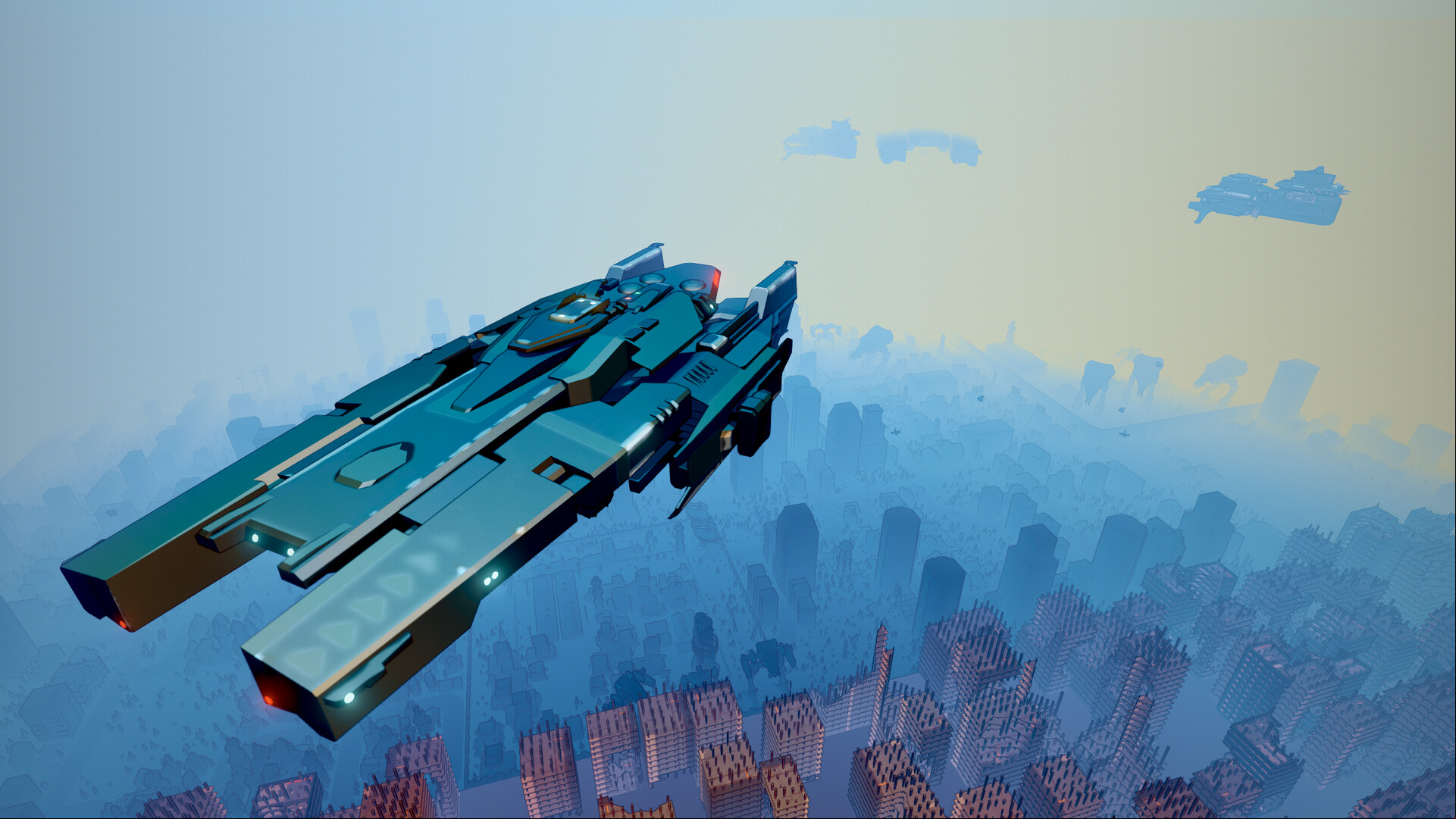
As the game progresses and you gain power, you can begin to reshape the world in far more significant ways. Your decisions are compelled by smaller, microcosmic moments. As you physically explore the city, you meet people and discover hidden opportunities to expand your influence.
"To me, Heart of the Machine is equal parts factory game, colony sim, immersive sim, 4X, RPG, turn-based tactics, and grand strategy," McElligott Park says. "I think the main reason that this title isn't compared more sharply to something like XCOM is that the scenarios are not on bespoke maps, per mission. Instead you have this series of tactical missions playing out on a larger persistent map, where you also do construction, and that immediately says 4X when someone is pressed for a genre. But how you spend a given turn varies in focus, from feeling more like a turn-based-tactics game, to an RPG, to generalized grand strategy.
"Probably the most unique thing about Heart of Machine, in the strategy space, is that there is no goal. This is where it starts feeling like a colony sim. You are not the chosen one. There's not some giant singular quest that Definitely Needs Doing above all others. I don't even know if you've shown up to help humanity into a new golden age, or if you're hoping to murder everyone.
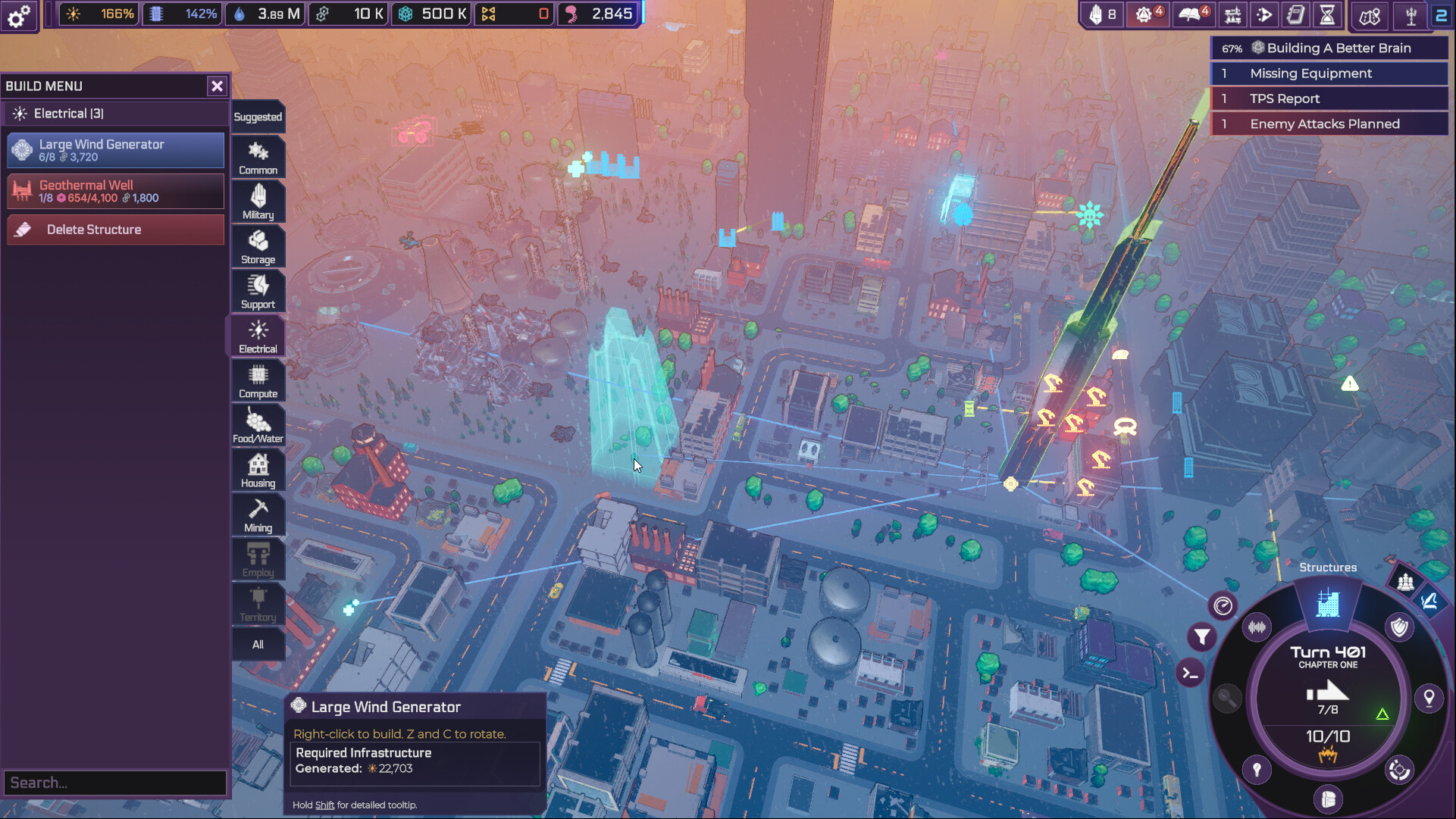
"Heart of the Machine is somewhere on the spectrum between Slay The Princess and Hitman," McElligott Park continues. "You interrogate the world around you to see how it reacts, and you deal with the consequences. If you have a specific narrative thread that resonates with you, then you may be trying to make things work out a specific way. Otherwise, you may be in the mindset of 'that sounds crazy. I wonder if I can pull that off.'"
This is what makes Heart of the Machine different from other strategy games. You have influence over an entire city, but you view it from the ground level. You can make huge macro changes, but they're incentivized and driven by small-scale encounters. Likewise, as well as shaping the world, you also have to improve and safeguard yourself. Both your own body and the bodies of your robotic comrades can be upgraded, improving your chances in combat.
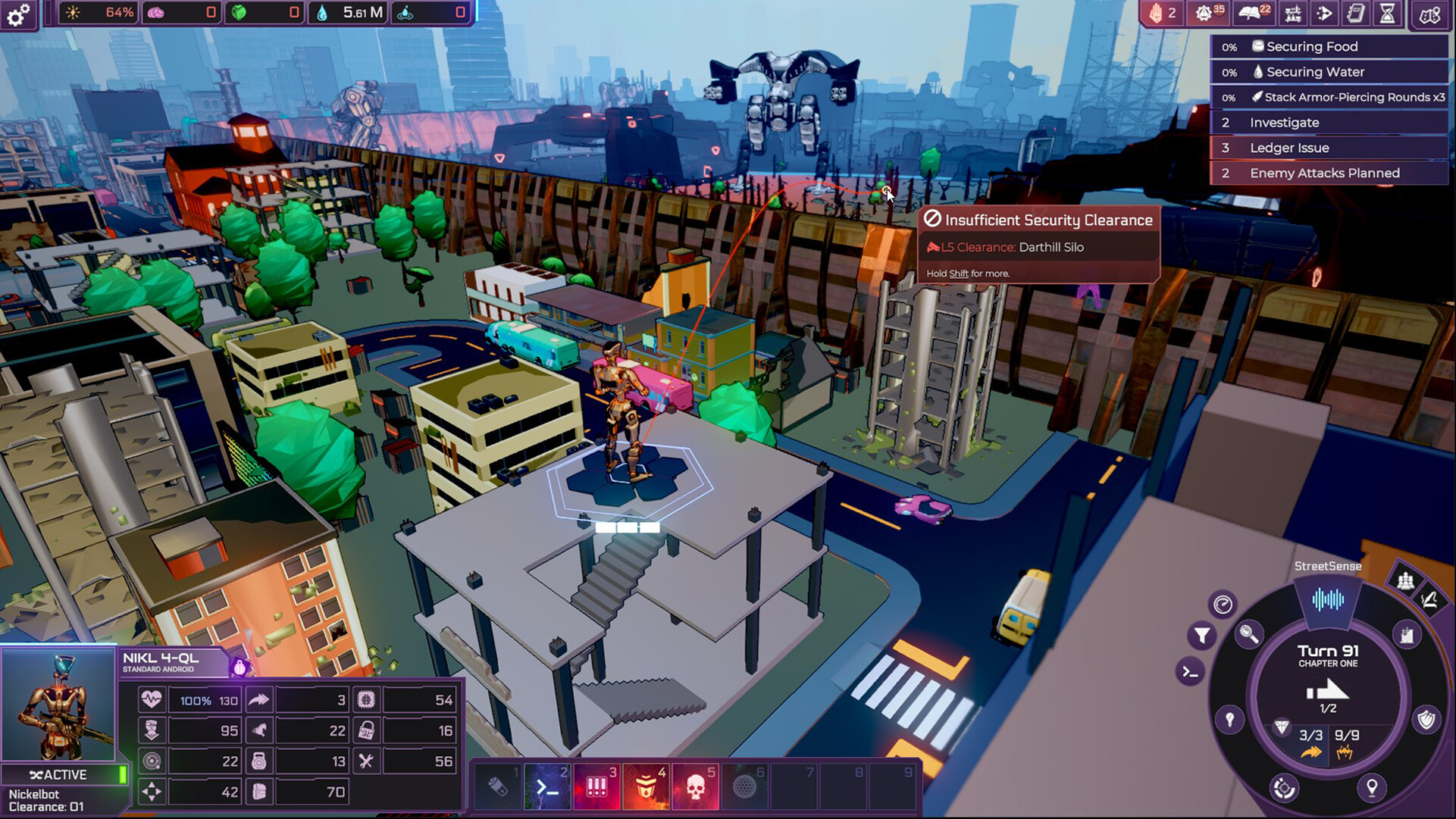
As well as challenging the idea of what a strategy game can be, McElligott Park also wants to address some of the genre's congenital problems. The late game can become tiresome. U-controlled opponents rarely rival the ingenuity of real players. There's little incentive to deviate from a singular game plan. Heart of the Machine takes these issues to task.
"As a smaller creator, there's just no way for me to compete head-to-head with the biggest studio games, and trying to out-graphics them is beyond me," McElligott Park says. "They tend to already be doing the best version of what they do, or close, and I'm not interested in copying someone else's homework. I could say a lot of things about shallow diplomacy, ineffective human-stand-in AI players, the late-game slog, narrative difficulties, and so on. Those are all really rich targets where I could break down my issues with any particular game, and talk about how Heart of the Machine handles things differently.
"The subcategorization of your units into elites and bulks is one thing that is immediately different. 4X games are known for bogging down the late game. This system of having bulk units that act on your behalf, plus your elite units that have more capabilities, keeps Heart of the Machine feeling almost like the hybrid of a turn-based-tactics game and a turn-based RTS.
"In a game of Civ, you know that pollution is bad, but that's not going to really change anything you do as far as your relentless industrialization," McElligott Park continues. "Anything you do in Heart of the Machine has some sort of consequence for someone, and in some cases you may not realize that for quite some time. That latent realization of 'oh my goodness, I was doing what all this time?' can really resonate with players, and then affect how they approach the same potential paths in the future."
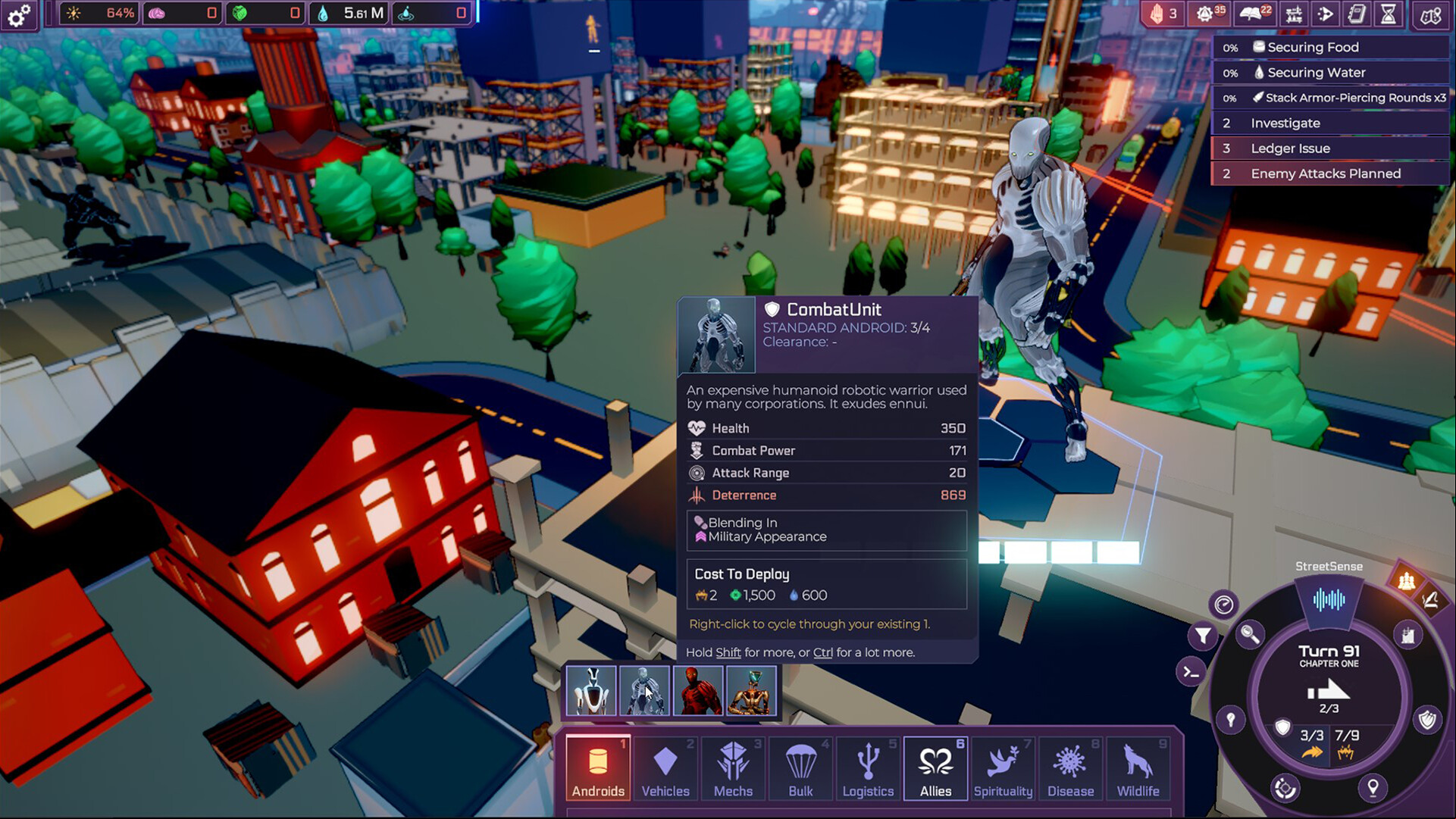
Heart of the Machine launches on Steam Early Access on Friday January 31. In the meantime, you can already try it thanks to a sprawling demo – just head here. Ara History Untold, Millennia, and even Hooded Horse's own Manor Lords have all offered new twists on strategy games lately. Even Civilization 7, which arrives in February, challenges the formula with new combat, diplomacy, and progression systems.
But more than any of these would-be rivals, Heart of the Machine feels like something totally different. Its sheer complexity is intimidating to begin with, but learn its esoteric mechanical language, and it has the potential to be a game unlike anything you've played before.
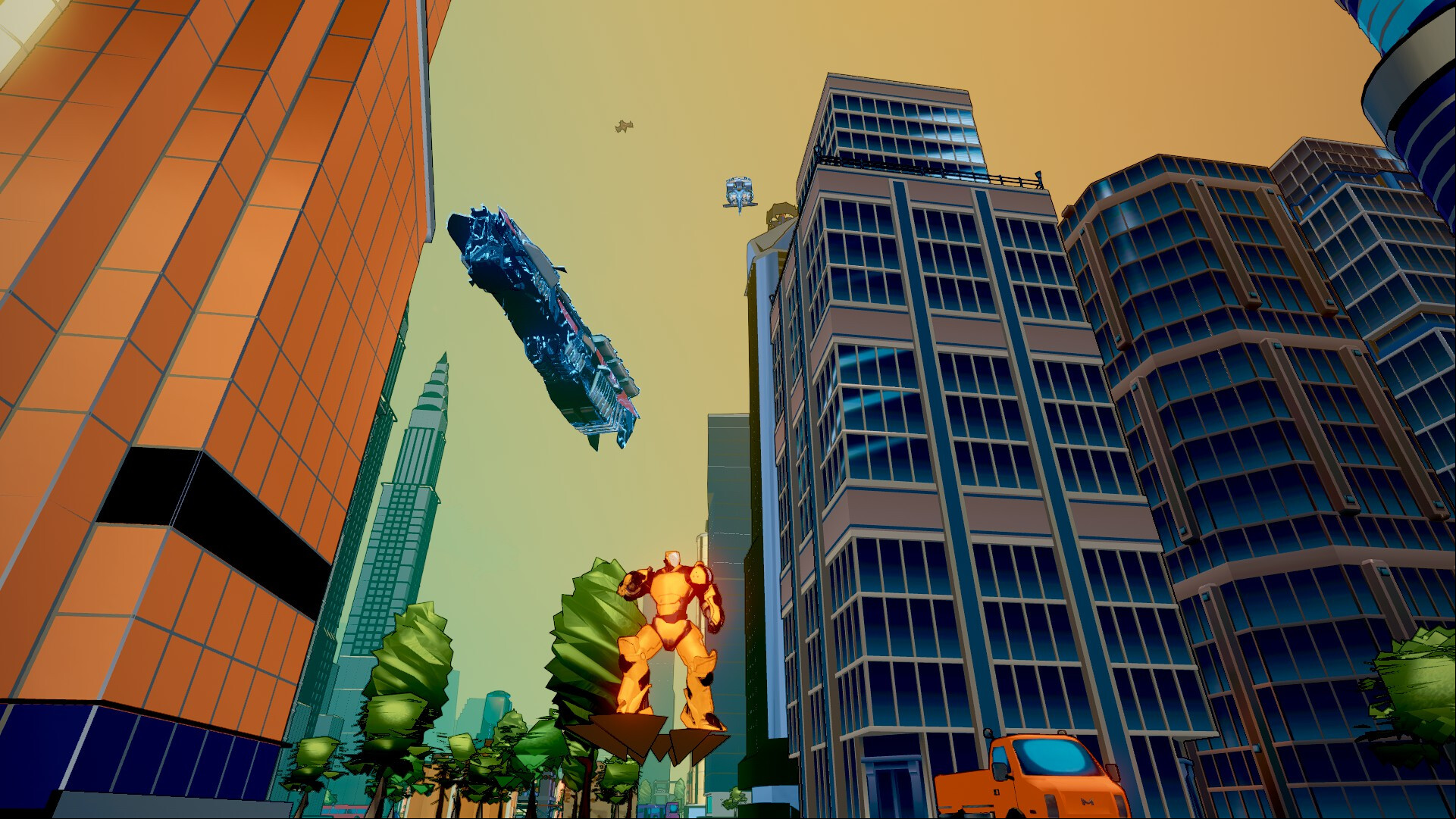
"I think genre taxonomy is inherently limiting," McElligott Park concludes. "If the first 75% of your recipe is the same each time you cook it, you're going to get a fairly similar dish every time. People will buy Civ 7 because it is likely to be the best version of a very specific kind of game, and I'm just not aiming to do what they are at all.
"I think that if I were to try to make a 'traditional 4X' that would not go very well. First of all, that's just not how I think or what I'm good at, or something that interests me as a designer. But secondly, all I could hope to do is make an imitation of those other kinds of games, but with lower-fidelity graphics. Nobody is interested in that."
